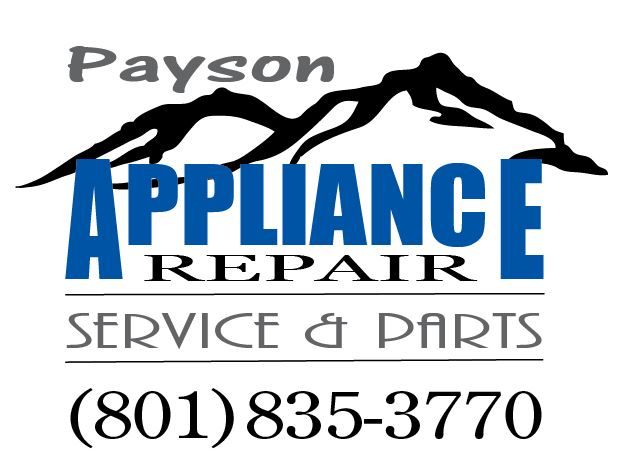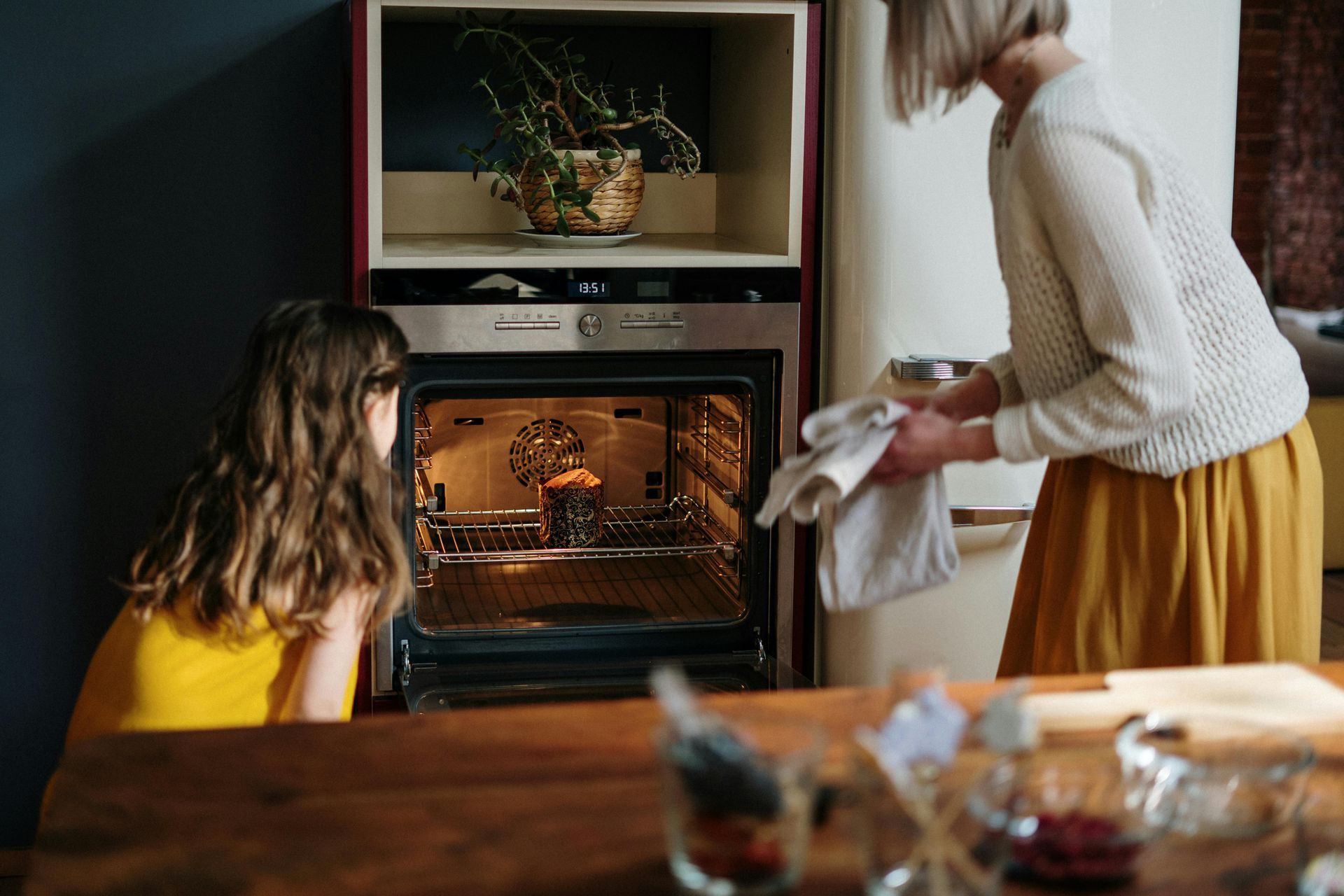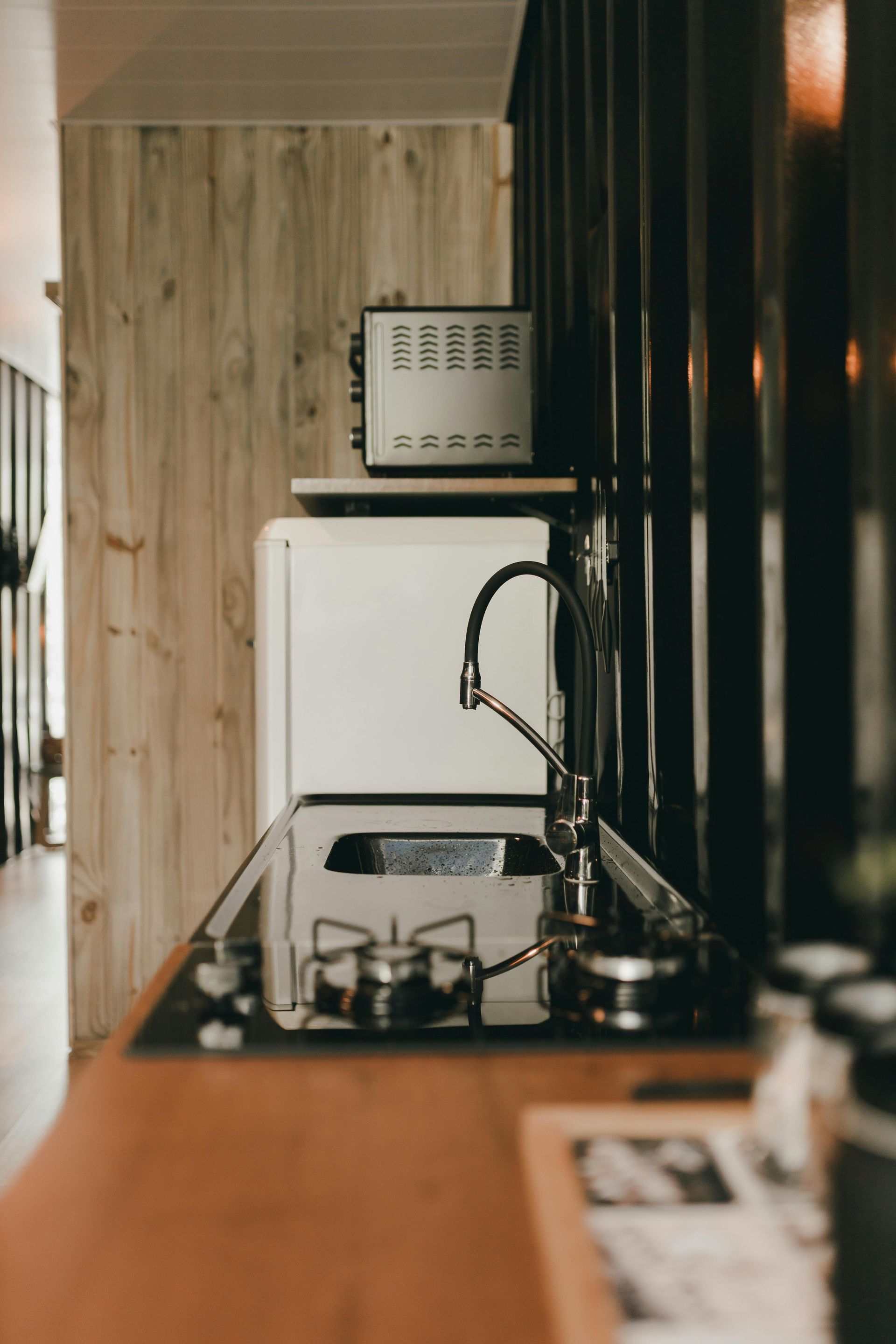Why Your Fridge Isn't Cooling and What You Can Do About It
A refrigerator is one of the most essential appliances in any home, keeping food fresh and safe. When it stops cooling properly, it can disrupt daily life and lead to spoiled groceries. Understanding why your fridge isn't cooling and knowing how to address the issue can save you time, money, and frustration. Whether it's a simple fix or a more complex issue, you'll find actionable advice to get your fridge back to optimal performance. If the problem persists despite your best efforts, it may be time to contact a professional for reliable refrigerator repair in Payson, Utah. Choosing a trusted local service with experience can make all the difference in resolving the issue quickly and correctly. To learn more about the company’s values, approach, and commitment to customer satisfaction, visit their about page.
Key Takeaways
- A fridge not cooling could stem from simple issues like blocked vents or more complex problems like a faulty compressor.
- Regular maintenance, such as cleaning coils and checking seals, can prevent cooling issues.
- Checking the thermostat and power supply is a good starting point for troubleshooting.
- Some fixes can be done at home, but certain problems require professional expertise.
- Keeping your fridge organized and avoiding overloading can improve efficiency.
- Knowing when to repair or replace your fridge can save you money in the long run.
Common Reasons Your Fridge Isn't Cooling
Several factors can cause a refrigerator to stop cooling effectively. Identifying the root cause is the first step toward fixing the problem. Below are some of the most common reasons.
Dirty Condenser Coils
Condenser coils, usually located at the back or bottom of the fridge, release heat from the appliance. When dust, pet hair, or debris accumulates on these coils, they can't dissipate heat efficiently, causing the fridge to struggle to maintain a cool temperature.
Signs: The fridge feels warm, or the compressor runs constantly.
Solution: Unplug the fridge and use a vacuum or coil brush to clean the coils. Do this every six months to prevent buildup.
Faulty Door Gaskets
The rubber seals (gaskets) around the fridge and freezer doors ensure an airtight closure. If the gaskets are damaged, cracked, or loose, warm air can enter, making it harder for the fridge to stay cold.
Signs: Visible tears, gaps, or condensation inside the fridge.
Solution: Inspect the gaskets for damage. Clean them with warm, soapy water to remove dirt. If they're worn out, consider replacing them.
Blocked Air Vents
Inside the fridge, air vents circulate cold air. If food or containers block these vents, airflow is restricted, leading to uneven cooling or warm spots.
Signs: Some areas of the fridge are colder than others.
Solution: Rearrange items to ensure vents are clear. Avoid overpacking the fridge to allow proper air circulation.
Thermostat Issues
The thermostat controls the fridge's temperature. If it's set too high or malfunctioning, the fridge may not cool properly.
Signs: Temperature readings are inconsistent, or the fridge feels too warm.
Solution: Check the thermostat setting (ideal is 35-38°F for the fridge, 0°F for the freezer). If it's faulty, it may need replacement.
Compressor or Evaporator Fan Problems
The compressor and evaporator fan are critical for cooling. The compressor circulates refrigerant, while the fan moves cold air. If either fails, the fridge won't cool effectively.
Signs: Unusual noises, constant running, or no cooling at all.
Solution: These components are complex and often require professional diagnosis and repair. For additional insight, read this guide on the top signs your refrigerator needs repair.
Low Refrigerant Levels
Refrigerant is the substance that cools the air in your fridge. A leak or low levels can prevent proper cooling.
Signs: The fridge runs but doesn't cool, or you hear hissing sounds.
Solution: Refrigerant issues are hazardous and should be handled by a certified technician.
Troubleshooting Steps You Can Take
Before calling a professional, try these troubleshooting steps to identify and possibly resolve the issue.
Check the Power Supply
- Ensure the fridge is plugged in properly and the outlet is working. A loose plug or tripped circuit breaker can stop the fridge from running.
- Test the outlet with another appliance.
- Check the power cord for damage.
- Reset any tripped breakers in your home's electrical panel.
Adjust the Temperature Settings
- Verify that the thermostat is set to the recommended temperature. Sometimes, accidental bumps can change the settings.
- Set the fridge to 35-38°F and the freezer to 0°F.
- Allow 24 hours for the temperature to stabilize after adjustments.
Inspect the Door Seals
- Test the gaskets by closing the door on a piece of paper. If you can pull the paper out easily, the seal may be weak.
- Clean gaskets with warm, soapy water and a soft cloth.
- Replace damaged gaskets to restore an airtight seal.
Clean the Condenser Coils
Dirty coils are a common culprit. Cleaning them is straightforward and can make a big difference.
- Unplug the fridge for safety.
- Locate the coils (check your manual if unsure).
- Use a vacuum or brush to remove dust and debris.
Ensure Proper Airflow
- Check for blocked vents inside the fridge and freezer compartments.
- Move items away from vents to allow air circulation.
- Avoid overloading the fridge, as this can strain the cooling system.
Listen for Unusual Noises
- Strange sounds like buzzing, clicking, or hissing could indicate a problem with the compressor, fan, or refrigerant.
- Note the type and frequency of the noise.
- Contact a technician if noises persist or cooling doesn't improve.
When to Call a Professional
While some issues can be fixed at home, others require expert attention. Here are signs you should call a technician:
- Persistent Problems: If troubleshooting doesn't resolve the issue, a deeper problem like a faulty compressor or refrigerant leak may be the cause.
- Electrical Issues: Burning smells, frequent breaker trips, or sparking require immediate professional attention.
- Complex Components: Repairs involving the compressor, evaporator fan, or refrigerant should be handled by certified technicians for safety and accuracy.
- Warranty Concerns: If your fridge is under warranty, contact the manufacturer or an authorized repair service to avoid voiding coverage.
If you're unsure about what the issue might be, this guide on refrigerator repair signs specific to Payson, UT may help you narrow it down before scheduling service.
Preventative Maintenance Tips
Regular maintenance can prevent cooling problems and extend your fridge's lifespan. Incorporate these habits into your routine:
Clean Coils Regularly: Vacuum or brush condenser coils every six months to ensure efficient heat dissipation.
Check Door Seals: Inspect gaskets monthly for wear and clean them to maintain a tight seal.
Organize the Fridge: Avoid blocking vents and overloading shelves to promote airflow and efficiency.
Monitor Temperature: Use a fridge thermometer to ensure consistent temperatures (35-38°F for the fridge, 0°F for the freezer).
Defrost Manual Freezers: If your fridge has a manual defrost freezer, defrost it regularly to prevent ice buildup.
Maintenance Schedule Table
| Task | Frequency | Notes |
|---|---|---|
| Clean condenser coils | Every 6 months | Use a vacuum or coil brush |
| Inspect door gaskets | Monthly | Clean with soapy water; replace if damaged |
| Check temperature settings | Monthly | Aim for 35-38°F (fridge), 0°F (freezer) |
| Clear air vents | As needed | Rearrange food to ensure airflow |
| Defrost manual freezer | Every 3-6 months | Follow manufacturer instructions |
Repair or Replace: Making the Decision
If your fridge continues to have issues, you may need to decide whether to repair or replace it. Consider these factors:
- Age of the Fridge: Most refrigerators last 10-15 years. If yours is nearing this age, replacement might be more cost-effective.
- Repair Costs: If repair costs exceed 50% of a new fridge's price, consider replacing it.
- Energy Efficiency: Older models are less energy-efficient. A new fridge could save on utility bills.
- Frequency of Issues: Frequent breakdowns may indicate the appliance is nearing the end of its life.
Consult a technician for an estimate before deciding. They can assess whether a repair is worthwhile or if a new fridge is the better option.
Frequently Asked Questions
Why is my fridge running but not cooling?
This could be due to dirty condenser coils, a faulty thermostat, blocked vents, or a compressor issue. Start by cleaning the coils and checking the thermostat settings. If the problem persists, contact a professional.
How do I know if my fridge's compressor is failing?
Signs include unusual noises (clicking or buzzing), the fridge running constantly without cooling, or warm temperatures inside. A technician can confirm compressor issues.
Can a power outage cause my fridge to stop cooling?
Yes, a power outage or surge can disrupt the fridge's operation. Check the outlet and circuit breaker, and reset the thermostat if needed.
How often should I clean my fridge's condenser coils?
Clean the coils every six months to prevent dust buildup, which can reduce cooling efficiency.
Is it worth repairing an old refrigerator?
If the fridge is over 10 years old or repair costs are high, replacing it with an energy-efficient model may be more economical.
Final Thoughts
A fridge that isn't cooling can be a major inconvenience, but many issues are preventable or fixable with basic troubleshooting. By checking the power supply, cleaning coils, ensuring proper airflow, and maintaining door seals, you can often resolve the problem yourself. For more serious concerns like compressor failure or refrigerant leaks, it's best to seek professional appliance repair services to avoid further damage.
Regular maintenance and prompt attention to problems can keep your fridge running smoothly for years. However, if your appliance is aging or repairs are too frequent and costly, you may want to consider replacing it with a newer, more energy-efficient model. Need help figuring out your next step?
Contact our team today to schedule a service or get expert advice on your refrigerator issue.


